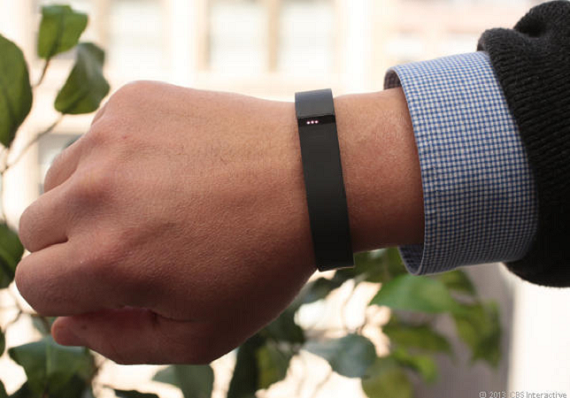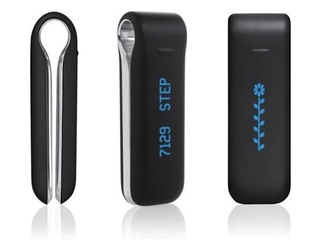

When it comes to working out, I am lazy. For a long time I tried to counter this fact by making excuses; when I was in college it was because I had class all the time. When I got older it was because I was too poor to pay for a gym. And then when I had money I was working too hard and didn’t have time. But I have simply stopped making excuses: I am lazy. And I’m ok with that.
For the more motivated out there, though, there is a ton of technology to help them with their daily workouts, including mobile health wristbands like the Jawbone Up, the Nike Fuelband or any number of devices from Fitbit.
Fitbit, the maker of the Fitbit One and the recently released Flex, has raised $43 in Series D funding. The news was first revealed in a filing from the Securities and Exchange Commission, and has now been confirmed to VatorNews by Fitbit.
New investors in this round include Qualcomm Ventures, SAP Ventures and SoftBank Capital. Existing shareholders Foundry Group and True Ventures also took part in the round.
Fitbit had previously raised a $12 million Series C funding round, led by The Foundry Group and True Ventures, in January of 2012, and this latest round brings the company’s total amount raised to $66 million.
The money, Fitbit says, will be used to accelerate the company’s hiring of hardware and software engineers, designers, product managers, data analysts and marketers. The company would not share any exact numbers on how many workers it was looking to hire, however.
The capital will also be used to support Fitbits plans to expand global exansion. While no specific markets were mentioned, a Fitbit spokesperson did reveal that the company has been focused on the EMEA and APAC regions.
Founded in 2007, the San Francisco-based Fitbit is the creator of a line of mobile health devices. Fitbit’s line of products includes the Fitbit Flex activity tracker wristband, Fitbit Zip and Fitbit One activity tracker clips, and the Aria Wi-Fi Smart Scale.
Within the last year, the company released three new trackers: the Fitbit Flex Wireless Activity + Sleep Tracker wristband, Fitbit One Wireless Activity + Sleep Tracker and the Fitbit Zip Wireless Activity Tracker, along with new mobile apps and a redesigned online dashboard.
Fitbit products are carried in more than 15,000 U.S. retail stores and sold internationally, including Canada, UK, France, Germany, Spain, Japan, Singapore, Australia and New Zealand.
Competition
Fitbit’s main competition in the space comes from the two companies I mentioned above: Jawbone and Nike.
Jawbone is the creator of the UP system, which uses devices to track its users movement and sleep. The app then displays the data, lets users add things like meals and mood, and delivers insights.
In December 2011, Jawbone raised $40 million from several investors including Kleiner Perkins Caufield & Byers, Deutsche Telekom and Yuri Milner — which brought the total funding for the company to $210 million.
The Nike Fuelband, which was announced in January of last year, is a bracelet that users wear to track their activity throughout the day. They can set goals, see how much they walked during the day, and track their progress. The bracelet sends the information to its own app, giving users NikeFuel points for their progress.
In July of last year, Nike and Path teamed up to bring that information directly to the user’s Path social media account.
Other competitiors include GAIN Fitness, an app takes the data from the user’s profile, including their height, weight, age and gender, along with their normal workout routine and experience. The app then compiles that data and creates a workout routine specific to that person. There are currently five levels for users to attain.
The company raised $650,000 in funding from InterWest Partners, Keith Rabois, Ben Ling, Michael Tanne, Brent Hurley, Seraph Group, and others in December 2011.
And there is also Skimble, the creator of social fitness apps such as Workout Trainer, Fitness Flow, and GPS Sports Tracker, which are designed to help motivate people to get and stay active.
(Image source: http://reviews.cnet.com)























